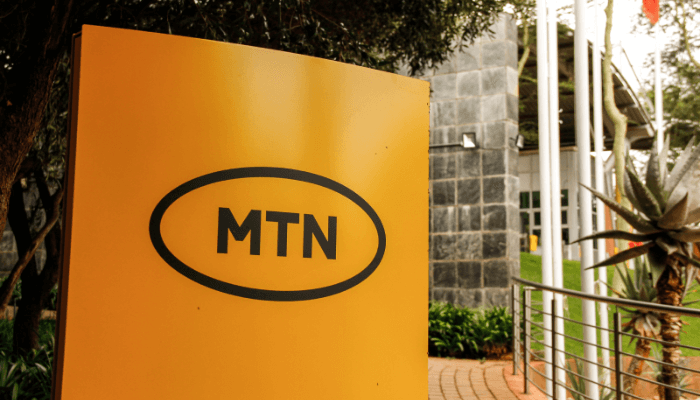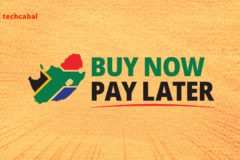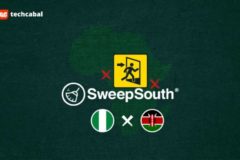With a youth unemployment rate of 38%, young Batswana are turning to content creation to create employment for themselves and their fellow citizens.
For Marang Selolwane, a Gaborone-based content creator with over 275,000 followers across Facebook and Instagram, her work goes beyond the confines of the definition of “content creation.” This ethos has seen Marang score deals with some of Botswana’s leading corporates, including telcos, commercial banks, and insurance companies. “I consider myself a connector or a storyteller. My partnerships are with corporates because my brand ethos is simplifying complex services for everyday Motswana,” she told TechCabal over a call.
Despite having one of the most expensive internet costs on the continent, content creation and consumption in Botswana has boomed in the last few years. Fuelled by a youthful population with an insatiable appetite for social media platforms like Facebook, Instagram, YouTube and TikTok, content creators like Marang have carved out a niche by creating content for an audience that is always hungry for more.
Maatla Ephraim Basha, a content creator with over 700,000 subscribers across his YouTube and Facebook pages, says he’s sometimes surprised about the extent of his reach. “When I do nationwide tours with some brands, we visit remote villages which I never even knew existed. I often think no one knows me here, but I see young and old people reenacting some of my skits when we get there. That shows me how much content in Botswana is appreciated and relatable to our people,” he told TechCabal.
Going beyond social media
Although content creators have enjoyed exponential audience growth, monetisation is still a struggle. Triccs is an award-winning comedian who started creating skits on his social media pages. Despite having over 43,000 followers on his Facebook page, he could not monetise that audience, leading to him exploring other routes. “Most platforms like Facebook and YouTube don’t have monetisation options for Botswana-based content creators because of our small population. So even if you have a lot of followers who engage with your content, you still cannot directly monetise it on the platforms.”
According to Triccs, working with corporates as an alternative to directly monetising his audience on social platforms has limitations. The main limitation is the tendency of corporate marketing not to give creators enough room to lead content ideation. “Most corporates don’t use the creatives for their creativity but for their numbers. In my opinion, that is killing the game because, as a creator, I have to do subpar content which was ideated by the corporate’s marketing team without much input from me. That then affects my brand because the audience will associate that work with me,” he added.
This point is further reiterated by Selowane, who notes with concern that for a significant number of corporates in the country, marketing campaigns are done by staff in head offices usually based in South Africa. These departments, she adds, sometimes don’t have the context to understand the kind of content that resonates with a Botswana audience.
“Sometimes you find that local marketing departments have very little say in deciding the type of content that local content creators will provide. As a creator, you have to work directly with the head office in a different country, mostly South Africa, which limits your ability to create genuine content that you know will appeal to your Botswana audience,” she said.
Despite that challenge, she adds that it is essential as a creator to stay true to your voice and brand because that is what your audience is following you for. Straying from that to close an endorsement deal will likely alienate them in the long run and decrease their level of engagement with your content.
Basha expounds on the concern around the trend of not-so-good content getting preference for endorsements over well-thought-out content. “I think it’s just about the shock factor and not necessarily good content nowadays. Sometimes you get people who “blow up” on social media because they say and do wild things, and suddenly, they are all over brand endorsements. I’m always happy for people to get their money from brands, but it paints a bad picture about the overall state of content creation in the country,” he added.
A startup offering monetisation alternatives to creators
Aurora Media Group is a multimedia streaming platform whose mandate is to “allow Africans to have a platform in which they can put their content out there without the constraints imposed by most content distribution companies.” According to co-founder Moagi Onkabetse, current content distribution and monetisation models take a lot from the creators without offering much in return, and Aurora wants to disrupt that model.
“With Aurora Television, our video-on-demand and live TV platform, creators can submit their content in two categories, either as a finished product you licence to us, and we share dividends through that product’s lifetime. Alternatively, we allow people to submit their scripts, and we facilitate the production, marketing and distribution,” Onkabetse told TechCabal.
According to him, interest in the platform from Botswana creators has been significant, with over 400 submissions received after the product’s launch in May 2023. Numerous licensing deals have been struck from those submissions, and a couple are still in the negotiation phase. Onkabetse adds that despite limited budgets, the submissions they have received have been good, showing the potential that content creators in Botswana have.
“In my opinion, the talent in this country in content creation is immense. If these creators were to be given the right distribution and monetisation opportunities as well as the right funding to take on larger projects, they could contribute significantly to this country’s export mandate. I say this because Botswana content is unique and can appeal to a wider continental and even global audience,” he added.
Still a lot of work to be done
According to Masego Mohwasa, award-winning director and founder of 27 Pictures, a production house whose product offerings include short films, TV shows and commercials, there is also a lot of work that creators have to do to make themselves attractive to potential monetisation channels. She cites the lack of efficient marketing as one of the areas to be addressed by content creators.
“As content creators, we fall short of marketing our content. We don’t feel the need to create marketing budgets, and marketing is a big part of content creation, if not the most important. If you don’t get your content out there, no one will see it,” she told TechCabal.
Mohwasa adds that with the proper marketing, support for local content creators such as filmmakers is apparent. “In instances where people have marketed their content properly, support has been there. New Capitol Cinemas, for example, have been huge supporters of local content, and every time they have been asked, they have given room to local producers to premiere their content, in which case the cinemas fill up. So there’s no doubt that when people know about the content, they will come out to support it.”
Despite content being picked up by cinemas and UPICtv, the government-owned video-on-demand streaming platform which has shown the majority of local content, Mohwasa concedes that in terms of monetisation, there is still a long way to go before creators can sustain themselves through their work. “Just because we have limited platforms to distribute content means limited monetisation opportunities. There is a market for tourism content, for example, but there are so many creators. That’s why a lot of creators end up in the corporate space. It’s always not by choice but by necessity. They end up there because they realize there are no monetisation opportunities in other channels,” she added.
Addressing the challenges
From conversations with content creators and other stakeholders in Botswana, it is clear that the industry faces existential challenges. Selolwane believes that structure in the industry as a whole can go a long way in helping creators turn their work into sustainable means of earning a living. For the sector she believes talent agencies are vital in an industry where sometimes creators have to spend more time chasing payments for work completed than actually doing work.
“I would love for us to have talent agencies that are the middlemen between the corporate, marketing agency, and the content creator themselves. Before I had a manager, I had to handle creating content, making bookings, chasing invoices etc. But with a manager, I can focus more on my content and let my manager handle all the other admin, which has been very helpful,” she said.
She also states the importance of other peripheral services, like lawyers and accountants, in helping content creators build resilient business models that can withstand the challenges of being in the creative industry.
“It is important to have a lawyer because lawyers will sift through the legal agreements and ensure that what you sign for is what you get. Otherwise, you may be in a position where you don’t own the content you created. Now the content is being used on billboards, radio, TV, etc., but you only get paid for only one of those platforms. Accountants are vital because you have to keep track of where money is coming and where it’s going so that you don’t end up without funds for projects because you misused funds, ” she tells TechCabal.
Mohwasa believes that a well-structured industry can go a long way in helping creators not only bargain better both with private sector and public sector stakeholders but also grow the industry in general so that future creators have much better circumstances.
“I think we just need to get organised to help facilitate structure in the industry. Once the structure is there and the value chain is properly defined, we will be better positioned to harness value. Right now, we’re in a situation where everybody is just scrambling for whatever little opportunity is there, which is not sustainable in the long run,” she said.
For his part, Basha believes that solving the distribution bottleneck is key to unlocking the industry’s value. He thinks through platforms like UPICtv allowing creators to pitch pilots instead of full-scale productions and then helping to fund the shows if they are picked up, creators can reap significant value from their work.
“Most of us want to see our content on these platforms, but we simply do not have the means to fund production. Unfortunately, the stuff I put on my YouTube and Facebook is below the expected quality of those expected by a streaming platform. If I’m allowed to pitch a sample and the platform like it, they can fund the full production, and we can talk about a revenue split model,” he said.
With a platform like Aurora offering precisely that kind of business model, despite the industry’s challenges, the signs are encouraging about the future of content creation and monetisation in Botswana.
In a country where the current youth unemployment rate stands at 38%, content creation appears to be a viable avenue to help bring down those figures. Not only does it appeal to young people, both from the creation and consumption sides, but if its value chain is well developed, it can open up other employment avenues. But before that can be realised, bottlenecks within the industry, including in production, marketing, distribution and monetisation, must be addressed.
Creators like Selolwane, who now has a small team, are proof of the concept of the employment creation value that can come from a well-supported content creation industry. The question that now remains is, does the stakeholders in the industry, including creators, corporates and government, have the willingness to work together to address the hindrances that are limiting the industry from reaching its full potential? Only time will tell.





















